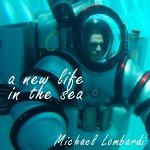 Like it or not, the little girl has a good point.
Like it or not, the little girl has a good point.
Greta Thunberg’s recent United Nations address was strong, clear, and consistent. Some elder folk are probably hearing her soapbox speech and the response is an ‘aww isn’t she cute’, and that’s exactly what’s wrong – ‘how dare you’ is exactly right. It’s easy to take life as a ticket to ride out three quarter of a century or so until whatever comes next and dismiss the unbalance here on Earth as someone’s else’s problem. The fact is that ALL of it IS our problem. A sustainable humanity should be our purpose – that means to leave this place just a little bit better for the next.
So, what are the problems? I’m not going to harp on climate change per se so as to avoid highly opinionated rebuttals. An undeniable truth however is that humans are part of our global ecosystem, and do very much impact the way the world turns. So – rising tides, plastics, biodiversity loss, carbon emissions…it goes on and on and on. This anthropocene that we live in can continue, or not, and barring a massive asteroid impact this ability to survive and sustain humanity is our choice.
That is the big difference now as opposed to ancient history. We humans have evolved to a point of intelligence [or lack thereof] where we can choose what the future holds. Frankly, it’s pretty simple – we live, or we die, and we humans are not immune to the latter. This is the mass extinction event that may be coming our way that little Greta has touched on – we won’t fare well in a global ecosystem collapse.
I’m not saying all this to be negative or cast a doomsday conspiracy to the masses, rather to emphasize that we have responsibilities to ourselves, to others, and to our home and it’s questionable whether or not those responsibilities are being met. This is all basic stuff people.
Unfortunately, our entire system is driven by economics. Economics is the crafty scheme created millennia ago to establish value and manage that value. It’s an obvious necessity – I have two pebbles but need a big rock, and my buddy has a big rock but needs two pebbles. We decide that two pebbles is worth the same as a big rock, so make the exchange and we’re both happy. Then greed takes over – I have this big rock, but hey wait, if I smash it into a pile of pebbles I can get a whole bunch of big rocks from other people – and this repeats, and repeats, and repeats until there are no more big rocks. So, then we go dig up some more – everyone suddenly wants pebbles to trade for big rocks and while the trade has been established, the inherent value in the pebbles, and the rocks goes down. They’ve become a commodity – everyone has them, pretty soon no one really needs them any more, and yet we’ve hung our inherent sense of worth and value on these rocks. So then some brainiac comes around and says ‘put all of your rocks in this bank and in exchange I’ll give you these pieces of paper’. They’re easier to carry around, and these days people need pebbles, rocks, and sticks, so we can just figure out what all this is worth. Only problem is that we have to cut down trees to make the paper, and pay someone some of this paper to make it, and then of course I want some of that paper for organizing all this. Anyway…
You see my point – we’ve devalued our natural resources and diluted any hope any prayer of balancing economics with nature…because of greed.
Greed is just the desire for more, for excess…not necessarily for something truly better that improves our lives. Then we start to stockpile the ‘more’ and ‘excess’ which is presumably our profits. This is where I get inherently confused. What is profit?
I’ve been somewhat fortunate to have lived and worked in a largely lifestyle business (diving professionally) that is anything but profitable, and reap some valuable lessons along the way. Sure, I’ve made decent money from time to time, but each of the wins just helps ride the wave to the next one. Being self-employed, we actually have to be careful about ‘profit’. Very early on when I started out, at age 16, I was 1099’d and forewarned about saving a good chunk for tax time. I was actually advised to spend it and invest in myself so I’d have deductions at tax-time. The name of the game quickly became living modestly just above the poverty line and putting everything back in to my ‘business’. That’s how this whole can of worms started, and how it continues to turn. Sure, I’ve had ‘profitable’ years, but after taxes, those proceeds have ended up the reserve for lean times, or for leverage when needing to finance a bigger endeavor. I’ve never had the big bucks, and don’t necessarily think I need them, nor do I want them. Point is that every penny in has gone out, but not for excess – it’s been for creating a sustainable future for myself. It’s the only way I know at this point, and so we keep growing, or rather evolving, and increasing our value. If I were to sit on all of the ‘profits’ and stockpile a load of cash, what good does it do me in the end? In fact, it would slow down the engine since needed resources are sucked out of the system, and possibly even make it difficult for the engine to turn from time to time.
Now, I’m no master economist, and have had my own share of financial trouble given the volatility of this frontier industry called diving. But, logic tells me that if profit were removed from the equation globally, that a number of social, health, and environmental issues would start to balance themselves out. Think GAIA, or global balance in the force. That may make me accused of socialism, but I truly believe that we all have something to contribute if afforded the opportunity. So, how do we do it?
It’ll never happen with the current economic structure built upon the exchange of goods and services (and presumably backed by the value of gold). Here’s a hypothetical – what if our economy were backed by the health of our natural resources? If the planet is healthy, we prosper, if the planet is unhealthy, we are punished or penalized. This can be done with sound models that quantify inputs and outputs into a given system and their current known respective costs or value to that system. We would then have to bank against that model, rather than bank against the exchange of goods and services. Confusing? Well, it could be rather simple. Call this crazy, but spending 5 hours a day, every day, at the bottom of a muddy bay with nothing but time to think can shed some light on these types of things.
What may be the key is the emerging tokenization of assets. If we consider the planet and its resources an asset (which we absolutely should), then why not tokenize it? Define its value, Establish a means to acquire, distribute, exchange, and monetize this value, and it will only help us all, and the planet. When these problems aren’t just young kids kicking and screaming, but actually hit our wallets is when things will change.
Until then, I hope Greta and others continue to kick and scream. Just remember that kicking and screaming activism is just the tip of the iceberg – it’s some real action and leadership to take bold action that will get the job done. Determining where this comes from is probably the biggest challenge of our lifetimes.

